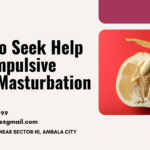Prone masturbation is a personal choice and a technique some people prefer. However, like any habit, it can become a concern when practiced compulsively. If prone masturbation starts interfering with daily life, relationships, or mental health, it might be time to seek guidance. This article explores compulsive behaviors related to prone masturbation, their effects, and when therapy might be helpful.
Table of Contents
What Are Compulsive Behaviors?
Compulsive behaviors are repeated actions that feel difficult to control, even when they cause stress or interfere with everyday life. While prone masturbation is a normal activity for many, it can turn into a compulsive habit if:
- It becomes a daily necessity rather than a choice.
- It disrupts work, social life, or relationships.
- It leads to feelings of guilt or distress.
Signs That Prone Masturbation Has Become Compulsive
Here are some signs that prone masturbation might be more than a habit:
- Frequency: Engaging in prone masturbation multiple times a day, despite wanting to stop.
- Interference with Life: Missing work, school, or social events due to the habit.
- Emotional Distress: Feeling guilt, shame, or frustration after the activity.
- Physical Discomfort: Experiencing pain or soreness but continuing the habit.
- Difficulty Stopping: Feeling unable to reduce or stop the behavior, even when trying.
Why Seek Therapy for Compulsive Prone Masturbation?
Therapy can provide valuable tools and insights for managing compulsive behaviors. Here’s how therapy helps:
- Identify Triggers: A therapist can help uncover the emotional or psychological triggers behind the habit, such as stress or boredom.
- Set Healthy Boundaries: Therapy can teach strategies for developing a balanced approach to sexual habits.
- Address Underlying Issues: Compulsive behaviors are often linked to deeper issues like anxiety, depression, or low self-esteem.
- Develop Coping Mechanisms: Learn alternative ways to handle stress or emotional discomfort without relying on compulsive habits.
When to Seek Therapy?
You might consider therapy if prone masturbation:
- Causes emotional distress or impacts self-esteem.
- Creates tension in personal relationships.
- Feels uncontrollable despite attempts to stop.
- Leads to neglect of responsibilities or physical health.
Seeking help is not a sign of weakness; it’s a step toward a healthier and more balanced life.
Tips for Managing Prone Masturbation Habits
If the habit feels excessive but not yet compulsive, here are some self-management tips:
- Set Limits: Decide on a frequency that feels healthy and manageable.
- Redirect Energy: Engage in hobbies, exercise, or other fulfilling activities.
- Practice Mindfulness: Be aware of emotional triggers and focus on addressing them directly.
- Reach Out: Talk to trusted friends or a partner if you feel comfortable.
Therapy Options to Consider
Several therapeutic approaches can help address compulsive prone masturbation:
- Cognitive Behavioral Therapy (CBT): Helps identify and change thought patterns that drive the behavior.
- Mindfulness Therapy: Focuses on staying present and managing emotional triggers.
- Sex Therapy: Specifically tailored to address sexual habits and concerns.
Have any Question, Contact Now
Prone masturbation is a personal choice, but when it becomes a compulsive behavior, it’s essential to address the underlying issues. Therapy can provide the support and tools needed to regain control, improve mental well-being, and create a balanced, healthy relationship with sexual habits.
Taking the step to seek help is an empowering decision toward a healthier and more fulfilling life.
Final Thoughts
If you’re struggling with compulsive prone masturbation, know that you’re not alone. Reach out to a therapist or counselor to start your journey toward healing and self-awareness.







